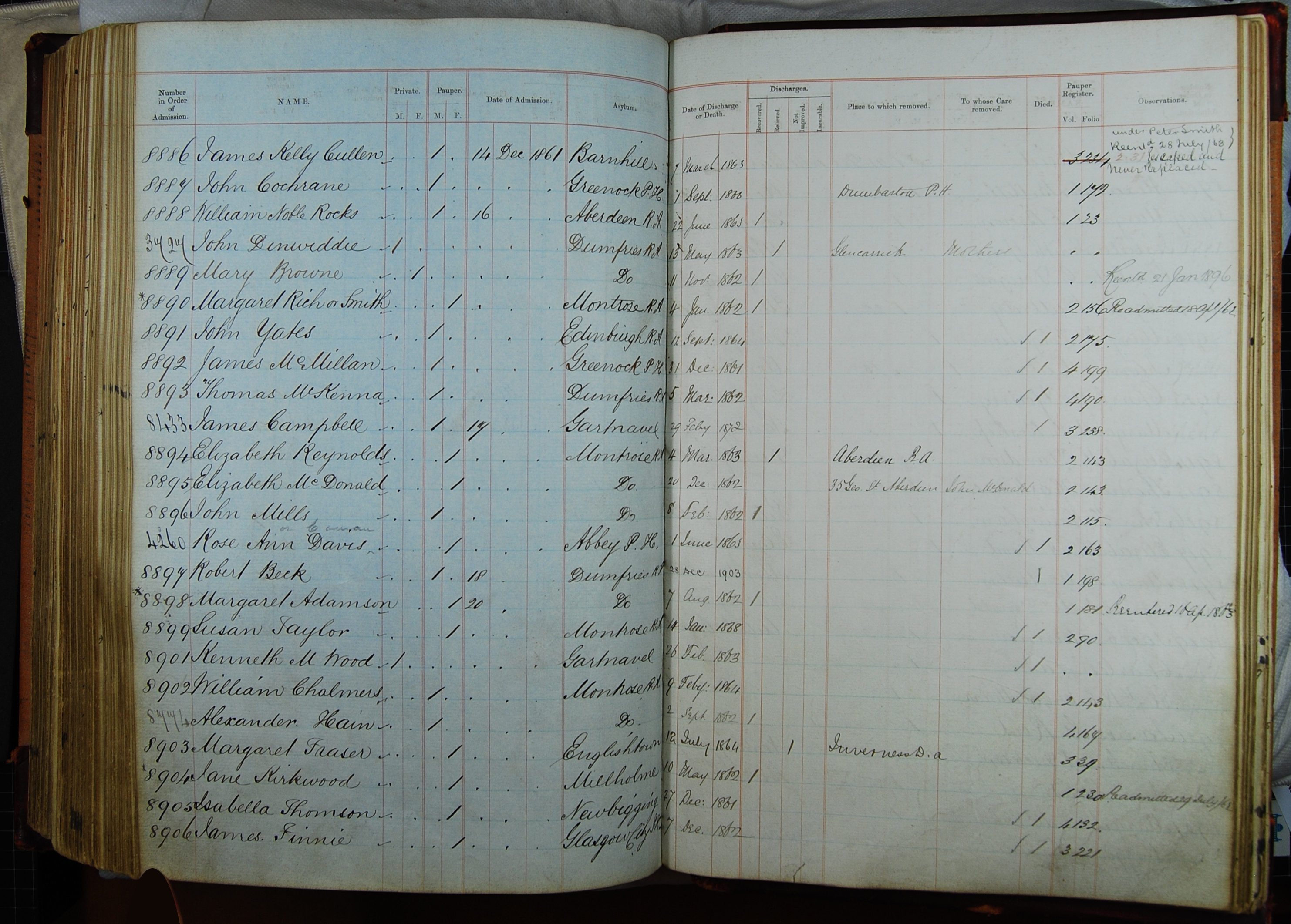FOR IMMEDIATE RELEASE
40,000 ‘Lunatics’ - Scottish Genealogy Website Enables People to Discover the True Lives of their Ancestors
4 August 2017
Glasgow, Scotland – Today Scottish genealogy website www.scottishindexes.com move another step closer to their goal of indexing all historical Scottish mental health records from 1858 to 1915. This release means the index now has 40,000 entries from across Scotland and includes people from every walk of life.
John Rae Thomson - Facts Indicated by Others - “His mother states...that the boys hooted & ran after him in the street crying “daft Jock”. (More images available in the press kit)
These historic mental health records give the story behind the facts. A census record may tell you that your great-grandmother was in an asylum, but not why she was there and that’s what we really want to know. This project, lead by Scottish Indexes, is supported by a growing team of volunteers.
Emma Maxwell, genealogist at Scottish Indexes says, “Our mission is to help people not only research their Scottish family tree, but also understand the lives of their ancestors.”
George Patrick Baillie - Supposed cause - A fall on his head as a child (More images available in the press kit)
The records being indexed by Scottish Indexes are held by the National Records of Scotland (NRS) in Edinburgh. Without an index they are hugely time-consuming to search and access to the records would usually mean a trip to Edinburgh. These records contain not just names, dates and places but personal information. For example the admission form of John Rae Thomson tells us that the supposed cause of his mental health problems was ‘Premature Birth’. The same record gives his mother’s account of how boys tormented this poor 26 year-old.
Viv from Scotland says, "Although I knew that some of my relatives were in mental health institutions, the indexes at Scottish Indexes and linked original records have allowed me to find out far more about their stories. I feel that I know so much more about these people, and the information is invaluable."
Ailsa from Australia says, “I have been using Scottish Indexes for quite some time now and found many references to my own family within them. They are great for me to use from Australia.”
ENDS
For further information please contact:
Emma Maxwell, Genealogist, Scottish Indexes, info@scottishindexes.com
Notes to the Editor
- We have prepared a press kit containing 15 images which can be used across all media platforms (download here: www.scottishindexes.com/press_kit.zip). These show full pages of the records and we have selected certain interesting sections of each page which we thought would be of particular interest to your readers. Each is embedded with a copyright statement (approved by the NRS) for your convenience. The examples given can be found in our index: MC7/1 p. 168 - John Rae Thomson and MC7/1 p. 173 - George Patrick Baillie
- www.scottishindexes.com is run by Scottish genealogists Graham and Emma Maxwell, a husband and wife team based in East Kilbride, Glasgow, Scotland. Indexes are created by Graham and Emma with the help of a team of volunteers. All indexes are free to view and the National Records of Scotland (NRS) reference is given so users can either access the documents without charge at the NRS, or purchase the service from Scottish Indexes.
- The original records being indexed by www.scottishindexes.com are held by the National Records of Scotland (www.nrscotland.gov.uk).
- Learn more about Scottish Mental Health Records in our Learning Zone: http://www.scottishindexes.com/learninghealth.aspx
- Read about what life was like in Scottish asylums on our website: http://www.scottishindexes.com/asylums










